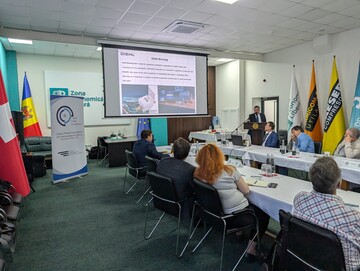
Between 2010 and 2020, due to incompetence, bureaucracy, and corruption, Moldova lost dozens of investors who could have created over 20,000 jobs
This was announced at a meeting of the Economic Press Club by Marin Ciobanu, head of the Association of Employers in the Manufacturing Industry (APIP). He noted that now, on the eve of elections, numerous biased assessments of the industrial sector are being disseminated, along with promises to open hundreds of new enterprises and stimulate industrial development. However, in reality, such irresponsible statements could only be made by incompetent people who lack understanding of the industry's situation, problems, and prospects. Marin Ciobanu recalled that Moldova lacked an industrial development strategy from 2015 to 2024, and the 2006-2015 strategy was not implemented. For example, it was planned to increase the industrial sector's share of GDP to 20-22%, but in reality, the share of the industrial sector decreased from 14.7% to 14.1%. It was planned to increase employment in the sector from 12.8% to 20%, but in fact, it decreased to 12.3%. Instead of industrial production growing by 8-10% per year, annual growth of only 0.25% was recorded. According to his estimates, over the period 2010-2020, Moldova lost important investment projects with the potential to create at least 20,000 jobs and attract an equal number of workers to related industries. Due to incompetence, bureaucracy, corruption, ill will, and envy, the Japanese corporation Mitsubishi, the German company Leoni Bordetz-Systeme, the Irish Johnson Controls, the Korean Youra Corporation, etc., did not come to Moldova. Now that Moldova has an Industrial Sector Development Strategy, it's important to build on past experience and pay closer attention to foreign investors. Currently, the Bălți Industrial Zone is negotiating with companies such as Magna Seating, Euster/Frismag, DeLonghi, Diehl, Rheinmetall, Kuka, and others, which operate in various industrial sectors, from robotics to innovative defense and security products. Marin Ciobanu noted particular prospects in the context of plans to rebuild Ukraine after the war, where Moldova and its industrial sector can play an active role. He also emphasized the importance of mapping state property (quarries, for example) that was illegally expropriated and transferred to private hands. "The state can become the basis for the development and rapid technical re-equipment of such enterprises; this way, we can contribute to Ukraine's recovery and provide Moldova's state budget with additional resources," Ciobanu noted. //23.09.2025 – InfoMarket.







